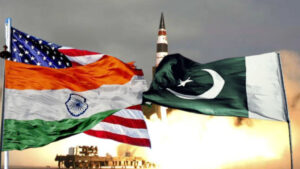This is not the best of times to be a Nigerian (and since 1999, it hasn’t ever been good) living in Nigeria not with another increment in the cost of petrol in the country. Yesterday, petrol per liter in Nigeria officially became N617 and N620, even as we know that in some locations particularly in the southeast states and in some northwestern states it would be more. When the news broke out early morning yesterday, I lost appetite, and I was very angry for three hours. How in God’s name would a government heap hardship on its people at the blink of an eye, in the same country where new federal lawmakers would be sharing N70 billion (each collecting N150 million) for the purpose of “settling down” to make laws for a country sitting on the neck of its masses. When on inauguration day the president came up to say, “subsidy is gone”, I was one of the few Nigerians who supported that first presidential decision but this one, I condemn it 100% whatsoever the reason for it is. Millions of poor, hungry, depressed and long-suffering Nigerians are still struggling to come to terms with “subsidy is gone” then BOOM again! Mr. Dele Alake, the Nigerian president’s Special Adviser on Special Duties, Communication and Strategy has now come out to tell us, in a statement he released, that the president has asked for a review of the plan to share N8000 to 12 million households (not 12 million individuals. According to the government, 12 million households translate into 60 million Nigerians. This means that the N8000 is not meant for an individual but for at least a family of four; man, wife and two children) for six months as it’s N500 billion palliative per its decision to remove petrol subsidy. When the plan on how to spend the N500 billion palliative was made public, I wrote an article to condemn it and did same when I was interviewed by Trust TV. I argued in both forums that N8000 a month in today’s Nigeria is not even up to what is spent on feeding a broiler chicken for the same period so cash transferring that sum to a HOUSEHOLD is a thoughtless move – in the same mold that I vehemently and consistently condemned the Siamese twin policies of the now arrested former Governor of the CBN; Godwin Emefiele. I expressed both disbelief and shock over the president’s tactics/strategy for cushioning the adverse effects of subsidy removal. But for now, it is a good thing that Mr. President has listened to some of us and has asked for its review. While I commend him for being a listening president, he must reorganize his think tank because this country cannot afford to have men and women who won’t engage in a robust SWOT analysis before making policies. In my interview with Trust TV, I suggested that instead of transferring cash to 60 million Nigerians (and boy, this is Nigeria! What are the guarantees that someone or a syndicate would not comer much of the money to themselves instead of the target beneficiaries in the same country where one man; Ahmed Idris; the country’s former accountant general stole over N109 billion and he isn’t yet in jail), the federal government should use the N500 billion to buy hundreds of mass transit “Marcopolo” 59 seater buses and distribute to the 36 states and the FCT to provide cheaper intercity and intracity transportation options for the masses. This way the harsh impacts of the removal of petrol subsidy felt mainly with the cost of transportation is reduced just as hundreds of new jobs would also be created because drivers and their assistants (conductors) would be needed/employed for the buses. Another suggestion – which is for the long term, is that the country’s refineries be made to begin to function as they should. Nigeria is the only OPEC nation that imports petrol, and this is a shame and cannot continue, if President Bola Ahmed Tinubu wants us to believe that he is serious about changing the country and making the lives of Nigerians better. The continuing narrative about petrol subsidy is mainly because we do not refine our own crude oil; a sweet oil that does not take much to refine because of its low sulfuric content. So, it is imperative that the new government begins to make the right moves to get our refineries working again – and doing this is not rocket science. The N500 billion can be used to kick start this recommendation, even as the government ensures that the money does not fly away into private pockets as it has happened many times in the past even under the immediate past government of Buhari. In that his statement, Mr. Dele Alake told of how the cash transfer of N8000 to 12 million households in Nigeria is not the only palliative and that the government is set to assist millions of farmers with fertilizers. Good and cheap talk but is this no longer Nigeria? Is this the first time we have heard this? Government would say it, but the fertilizers are cornered by its own officials while those it is meant for do not get it or buy it at exorbitant prices. While I would like to give this government the benefit of doubt since it is new, it must make sure that corruption in the system is minimized to the barest minimum – because if it doesn’t, it’s lofty objectives/plans would count for nothing even as Nigeria continues to become a very dangerous country to live in for its own people.

The Duality of U.S. Policy in South Asia
The recent U.S. sanctions on Pakistan’s missile program, coupled with unsubstantiated claims of its targeting the U.S., reflect a broader geopolitical strategy aimed at undermining Pakistan’s strategic autonomy while selectively favoring India’s missile advancements, thereby exacerbating regional power imbalances in South Asia.







